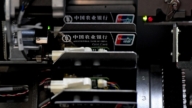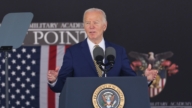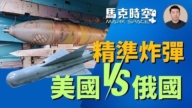【新唐人2011年4月20日讯】大陆央行公布了中国国家外汇储备余额,达到30447亿美元。4月18号,央行行长周小川承认,外汇储备已经超过了中国需要的合理水准。而西方的舆论认为,中国天量外储并不代表幸福,反而是中国的大包袱、大麻烦。
今年一季度,中国尽管出现了10亿2千万美元的贸易逆差,但是4月14号央行公布的资料显示,截至3月末,外汇储备余额为30447亿美元,同比增长24.4%。首次突破3万亿美元大关。
据《路透社》的分析说,外储每增加1美元,中国国内就相应的需要发行约6.5元人民币,向经济注入更多的货币。
简天伦博士(经济专家):“持有3万亿美元的外汇储备,对于中国来说,从经济上是很不合适的。 浪费中国人的钱,等于是全中国人民在补贴国外。由于购买很多美国国债,使得美国的利率下降。就是把中国的钱补贴美国。”
《路透》的分析认为,中国天量外汇储备推高通胀、搅乱经济平衡,还给国家的货币管理者制造了很大的麻烦。
简天伦认为,中国外汇储备影响通货膨胀,与人民币被长期低估有直接关系。
简天伦博士(经济专家):“低估人民币汇率,使得外汇储备增大,占国民生产总值的比例越来越高,由此而带来的货币供应量的增大及比例,也越来越高,几乎达到极限。所以这样就推动了中国的通货膨胀的增长。可以说最近几个月来,通货膨胀的增长很大程度是人民币低估、外汇储备的增加造成的。”
简天伦表示,中共政府其实并不想提高外汇储备,主要目地是要维持经济增长的势头。
简天伦:“如果中国的出口不能持续增长,中国的GDP国内生产总值就不可能有现在的速度,就很可能要滑下来,所以它虽然明知外汇储备过高,想把它减下来,它也没有动作,因为它要维持GDP增长,维持GDP增长,它才能维持政权的稳定。要不然经济出了问题,失业率出了问题,动荡就更厉害。”
4月18号,央行行长周小川在清华大学“金融高端讲坛”上表示,外汇储备已经超过了中国需要的合理水准,导致市场流动性过多,也增加了央行对冲工作的压力。
简天伦:“解决巨额外汇储备的情况有很多方法。一个就是提高人民币汇率,使得出口不至于这么廉价,换回外贸顺差;再一个可以提高国内的工资, 还有就是国内的通货膨胀,使得国内的产品出口价格上涨。现在中国是在用后者,用中国的国内的通货膨胀来解决外汇储备出超太多的问题,实际上等于牺牲国内大多数人利益,来解决这个问题。”
大陆经济学者邱林在他的博客中写道:“3亿美元外汇储备属于中国全体国民。动用这些外汇储备就应为民众办实事。”
中国网民也认为,储备再多,老百姓也没有得到任何实惠。政府应该藏赋予民,让人民把这些美元花掉!
新唐人记者李静、肖颜采访报导。
USD3 trillion FER of China
China’s foreign exchange reserve (FER) has reached
USD3.044 trillion, exceeding country needs level,
said China’s central bank Governor Zhou Xiaochuan.
According to Western media,
China’s large foreign exchange reserve buildup
is bringing more trouble than benefits.
China’s FER rose 24.4% year-on-year by March end
to USD3.044 trillion, despite the USD1.02 billion
in quarterly trade deficit, according to data released
on April 14 by the People’s Bank of China (PBOC).
Reuters analysis shows that for every dollar
that goes into reserve, China prints about RMB6.5,
adding even more cash to its economy.
Dr. Jian Tianlun (economy expert): “USD3 trillion
in FER is inappropriate for China’s economy.
It is wasting Chinese people’s money
to subsidize other countries.
Excessive purchase of US bonds will decrease
the US interest rate and thus subsidize
the US economy with Chinese money.”
According to Reuters analysis, China’s large FER
leads to inflation, disrupts economic balance,
and causes trouble to the country’s money minders.
Jian believes China’s high FER and inflation rate
is directly related to the undervalued RMB currency.
Jian Tianlun: “Undervalued RMB causes the FER
to expand, relative to GDP, stoking up currency
issuance nearly to the limit. Inflation rate thus rises.
So we can say that the recent surge in inflation
is caused by undervalued RMB and increased FER.”
Jian believes China’s real goal is not
to increase FER, but to maintain growth rate.
Jian: “Without continuous increase in exports,
China’s GDP will not grow at its current rate.
So China is not taking any action to reduce
its excessive FER, because it needs to maintain
the growth rate of GDP to maintain stability.
Any problems in economy or employment
can trigger social turbulence.”
“Foreign-exchange reserve has exceeded
the reasonable level that our country actually needs,”
said central bank Governor Zhou Xiaochuan
in a speech at Tsinghua University on April 18.
The rapid increase of the reserve has led to
excessive liquidity and fuelled inflation pressures.
Jian: “There are many solutions to the FER problem:
one is to raise RMB’s exchange rate & export prices,
thus recover trade surplus and increase home wages.
Another is to increase export prices through inflation.
China adopts the latter, sacrificing the majority
of Chinese people interest to solve the FER problem.”
Chinese economists Qiu Lin wrote on his blog:
“USD3 trillion in FER belongs to Chinese people.
It should be used to benefit the people.”
Chinese netizens too believe that the government
should let the people benefit from this large FER.
NTD reporters Li Jing and Xiao Yan






























